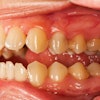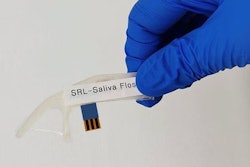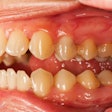
An eco-friendly disposable wood tongue depressor sensor could be key in helping doctors check glucose levels and testing other biomarkers in saliva in a sustainable manner, according to findings published recently in Analytical Chemistry.
A team led by Christos Kokkinos, PhD, from the National and Kapodistrian University of Athens in Greece highlighted that their modified wooden sensor can be created at a low cost. In addition, the biodevice offers other benefits.
While wood is a desirable material for researchers designing electronics and sensors, it is not a good conductor of electricity. Coating it with metals and carbon-based inks and charring specific regions into conductive graphite are a few ways to achieve this aim, but the methods can be expensive.
Kokkinos and his team used a portable, low-cost laser engraver to create a pattern of conductive graphite electrodes on a wooden tongue depressor that formed two electrochemical cells. Next, they used a water-repellent permanent marker to then separate the two e-cells.
The researchers used the biosensor to measure concentrations of nitrite and glucose in artificial saliva. The presence of nitrite can reveal oral diseases, such as periodontitis, and glucose levels can serve as a diagnostic test for diabetes (Anal Chem, April 20, 2023, Vol. 95:17, pp. 6765–6768).
The researchers suggested that these low-cost devices could be adapted to detect other biomarkers in saliva and would be quick and easy to produce onsite at medical facilities.



















